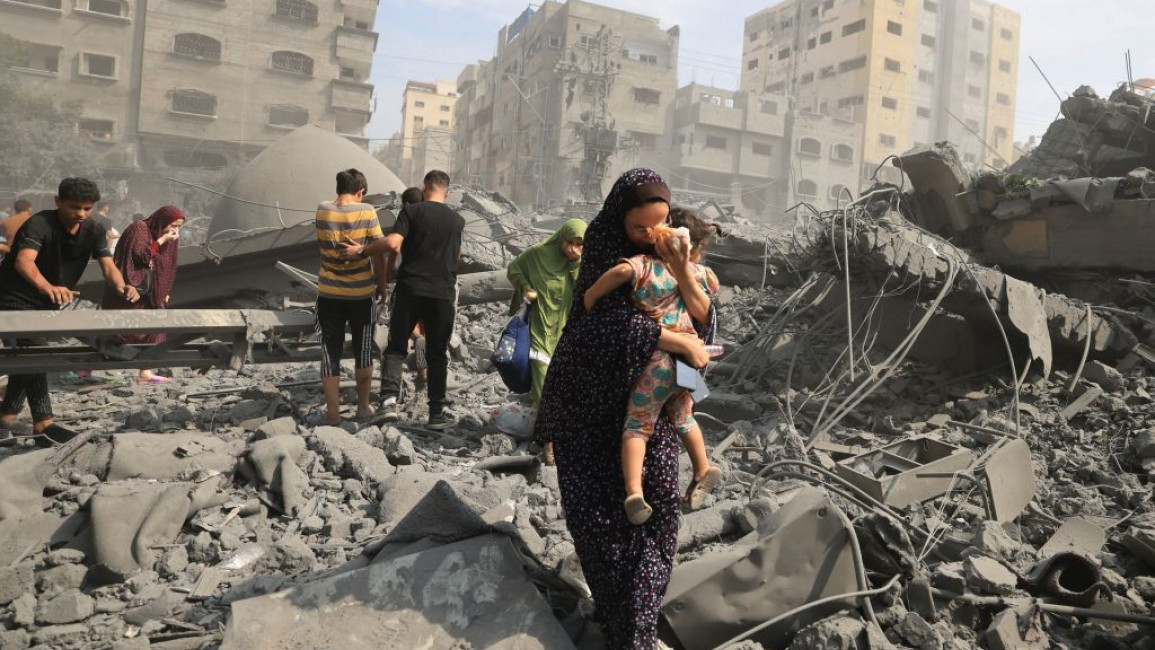By Amahle Cele
A Rhodes University PhD student in Gaza faces unimaginable challenges amid the escalating conflict, struggling to secure safety and basic necessities for his family while reaching out for help and support.
As the conflict in Gaza escalates, Rhodes student, Mohammed Alshannat, finds himself trapped in a nightmare. He shares harrowing experiences through a series of poignant WhatsApp messages directed to his supervisor, Dr. Ian Sieborger. With fear and uncertainty gripping his family, the student’s urgent pleas for help reveal the dire conditions they face.
In a message dated October 10, Alshannat expressed his deep fears, saying, “I have never been scared like this before in my entire life.” With limited food supplies and his children in distress, he urged Dr. Sieborger to rally support from the university, emphasizing that his academic pursuit was his “only window of hope” for a better future.
As the days passed, his messages painted a grim picture of their reality. On 17 October, he wrote, “We are dying a thousand times a day.” Struggling with poor health and inadequate shelter, he described the torment of sleeping outside and inhaling toxic fumes from the ongoing bombardments. “My children are very sick. We are dying of thirst,” he lamented on 22 October, highlighting the desperate situation as access to clean water dwindled.
The situation deteriorated further, with messages detailing the anguish of losing two children in a chaotic escape from bombing, only to miraculously reunite with them the following morning. As the conflict raged on, the family faced severe malnutrition and illness, compounded by the constant threat of violence.
In a heart-wrenching account from December, Alshannat recounted the injury of his son during a frantic attempt to flee. “I had to carry him bleeding under heavy artillery shelling for two hours,” he recalled, demonstrating the extraordinary lengths he went to protect his family amidst chaos.
Despite the dire circumstances, the student’s messages also conveyed a message of resilience. On 12 March, he wrote of desperate attempts to secure food during air drops, sharing the tragic reality of stampedes for resources. “We only have love for the Israelis and everyone else,” he emphasized, showcasing a remarkable capacity for compassion amid suffering.
As the conflict continues with no end in sight, the student expressed his intention to leave Gaza permanently, appealing for assistance from Rhodes University and the South African Embassy in Cairo to facilitate his family’s evacuation. “Our lives are in great danger,” he pleaded, underscoring the urgency of their situation.
The stories shared by Alshannat not only illuminate the harrowing experiences faced by those trapped in conflict but also serve as a stark reminder of the human cost of war. As the academic community rallies to support him, his narrative urges the world to confront the realities of those caught in the crossfire, reminding others of the power of solidarity and the need for urgent humanitarian action.
In a heartfelt message to Dr. Sieborger, the student expressed the profound emotional struggle of seeking financial aid, a situation that contradicts his beliefs and values. “Asking for help feels like a nightmare come true,” he wrote, sharing the toll it takes on his self-image as a hardworking academic. The pain of being forced into this position for the sake of his children weighs heavily on him, and he finds it unbearable to witness their suffering.
He described the harsh realities faced by families in North Gaza, highlighting that a family of six requires between $200 and $250 each week just to secure basic food needs. With famine returning to the region and prices skyrocketing, the student emphasized the difficulties in finding employment amidst such instability. He lamented, “If I had stable internet and residence, I could secure tutoring work,” but the current conditions leave him feeling helpless and displaced.
Dr. Sieborger stated, “We are raising funds for Mohammed’s family to help them buy basic necessities amidst the dire famine conditions in Gaza. To minimize unnecessary high international bank transfer fees, the funds are transferred to his bank account once a month. If you publish anything about him, please include the bank details of our fund or my contact information so that people can donate and assist him.”
Dr Sieborger’s email address is ian.sieborger@ru.ac.za
Despite his struggles, Alshannat’s message radiates a surprising sense of empathy and hope. He expressed a deepening compassion for all those affected by the conflict, stating, “We are both victims, and we have suffered greatly throughout history.” He fervently prays for a future where Palestinians and Israelis can coexist peacefully, underscoring his desire for love and understanding amidst the chaos.


